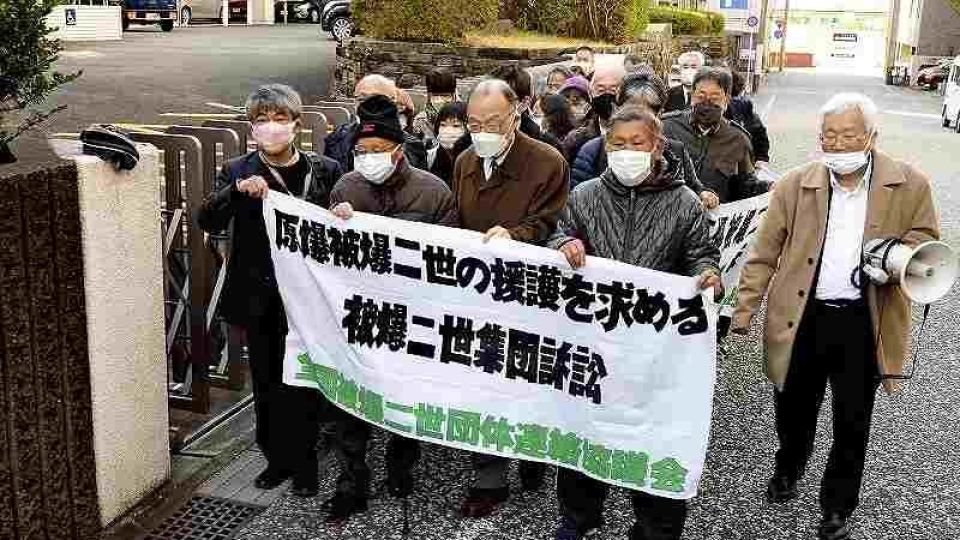December 13, 2022
TOKYO — The Nagasaki District Court on Monday dismissed a damages claim by “second-generation hibakusha,” or the children of atomic bombing survivors, who claimed the central government’s failure to provide them aid was a violation of the Constitution. This is the first judicial ruling on the genetic effects of the atomic bombings on the children of hibakusha.
The 26 plaintiffs, one of whom has died, claimed that the government violated the Constitution by failing to recognize as hibakusha second-generation survivors of the atomic bomb dropped on Nagasaki by the U.S. on Aug. 9, 1945, and failing to provide them with support.
They demanded ¥100,000 in compensation for each plaintiff.
Regarding the bomb’s genetic effects, which were the main point of contention, presiding Judge Hiroyoshi Amakawa said in Monday’s ruling, “Evidence has not yet been established, and we can only say that the possibility cannot be denied.”
The court concluded that not providing second-generation hibakusha with assistance cannot be considered a violation of the Constitution because they were not directly exposed to radiation.
According to the complaint filed, the plaintiffs claimed that the genetic effects of the atomic bombings “cannot be denied” based on the results of animal experiments, among other data. They also said that they had suffered psychological distress because they continued to feel anxiety about the possibility of health problems.
The government refuted the plaintiffs’ claim, saying there was no evidence that children of hibakusha would be affected by their parents’ exposure to the atomic bombing, citing results of a study on chromosome abnormalities in children of atomic bombing survivors by the Radiation Effects Research Foundation, a joint Japan-U.S. research organization.
The government further argued that it is under no obligation to take legislative measures to make second-generation hibakusha subject to the Atomic Bomb Survivors Support Law.
Following the ruling, Shuichi Adachi, a lawyer for the plaintiffs, said, “We want to consider what steps to take next.”
Meanwhile, the Health, Labor and Welfare Ministry released a statement saying, “We understand that the government’s defense has been accepted.”
The Hiroshima District Court will also rule on a lawsuit filed by second-generation hibakusha in February.

